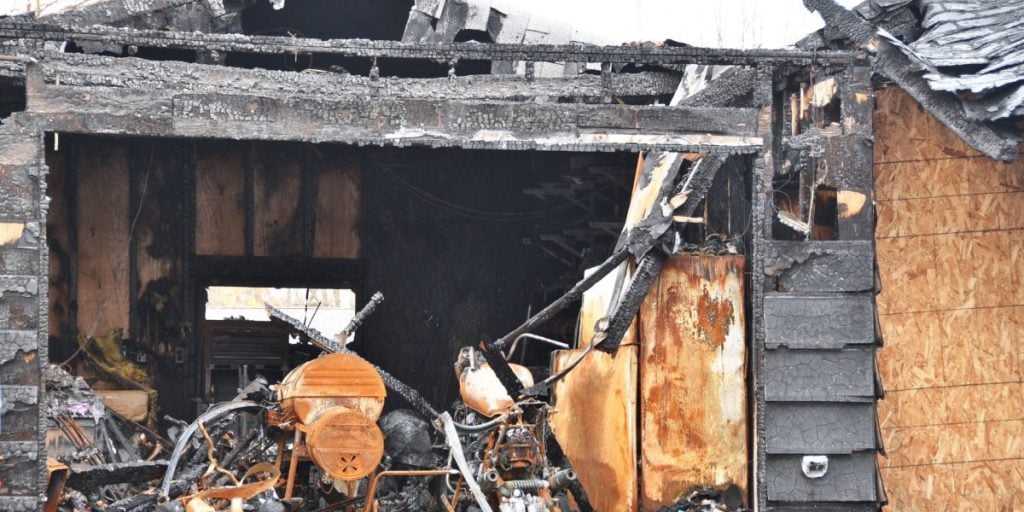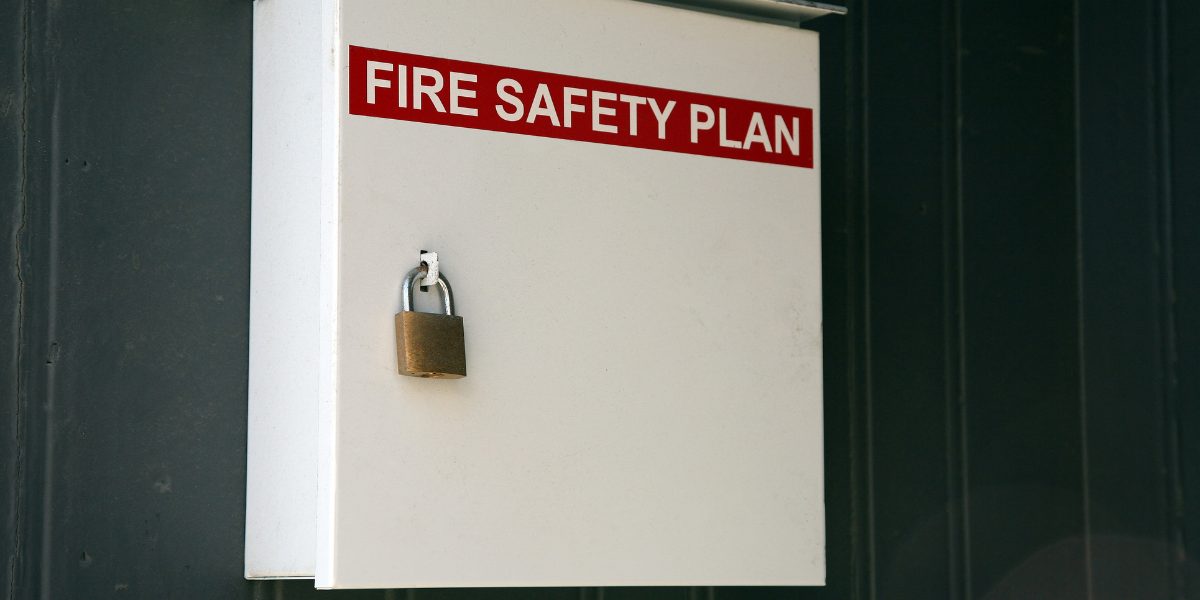Avoiding Disaster: Garage Fire Safety Measures You Need to Know
When it comes to fire safety at home, the garage is an often overlooked area that can pose significant risks if not properly managed. Many homeowners see the garage as a storage space for vehicles, tools, and various belongings, but it can also be a potential fire hazard if safety measures are not in place. Understanding the importance of garage fire safety is crucial for safeguarding your property and, more importantly, the lives of your loved ones.
Statistics on Garage-Related Fires
The alarming truth is that garage-related fires are more common than you might think. According to the National Fire Protection Association (NFPA), an estimated 6,600 garage fires were reported in the United States each year. These fires resulted in an average of 30 civilian deaths, 400 injuries, and $457 million in property damage. These numbers highlight the severity of the problem and underscore the need for taking preventive measures seriously.
The causes of garage fires can vary, ranging from electrical malfunctions and flammable material storage to improper use of power tools or even spontaneous combustion. A momentary lapse in judgment or neglecting basic safety practices can lead to devastating consequences.
Organizing and Storing Flammable Materials
Properly organizing and storing flammable materials is crucial to prevent accidents and potential fires in the garage. Here are some important points to follow:
- Approved Containers: Always store flammable liquids, such as gasoline, paint, and solvents, in approved containers specifically designed for their storage. These containers should be tightly sealed and properly labeled with their contents.
- Keep Away from Ignition Sources: Ensure that flammable materials are kept well away from any potential ignition sources like open flames, electrical appliances, heaters, and sparks.
- Fire-Resistant Cabinets or Storage Lockers: Consider using fire-resistant cabinets or storage lockers to provide an extra layer of protection for storing flammable materials. These cabinets are designed to contain fires in case of an emergency.
Regular Garage Inspections
Frequent inspections are essential to identify and address potential fire hazards in the garage. Here’s what you should do:
- Identify Hazards: Regularly inspect the garage for any damaged electrical wiring, frayed cords, and faulty outlets. Also, look out for any flammable materials stored improperly or clutter that could contribute to fire risks.
- Ventilation: Ensure proper ventilation in the garage to prevent the accumulation of flammable fumes, especially if you work with chemicals or store vehicles with gasoline in the garage.
Maintenance of Electrical Systems
A well-maintained electrical system reduces the risk of electrical fires in the garage. Follow these guidelines:
- Qualified Electrician: Hire a qualified electrician to inspect and maintain your garage’s electrical system regularly. They can identify and fix potential issues before they become hazardous.
- Overloading Prevention: Avoid overloading electrical outlets and extension cords with multiple devices or appliances. Use surge protectors where needed.
- Prompt Repairs: If you notice damaged cords or wiring, have them replaced immediately to prevent electrical accidents.
Installing Smoke Alarms and Fire Extinguishers
Early detection and quick response are crucial to minimize the impact of a fire in the garage:
- Smoke Alarms: Install smoke alarms inside the garage and ensure they are interconnected with the rest of the house’s alarm system. Regularly check and replace the batteries.
- Fire Extinguisher: Keep a fire extinguisher rated for garage use in an easily accessible location. Ensure everyone in the household knows how to use it effectively.
Prohibiting Smoking in the Garage
Smoking in the garage should be strictly prohibited due to the heightened risk of fires:
- No-Smoking Policy: Enforce a no-smoking policy within the garage area to eliminate the risk of accidental fires caused by discarded cigarette butts.
- Designated Smoking Areas: Provide designated outdoor smoking areas away from flammable materials and the garage.
Proper Storage of Tools and Equipment
Keeping tools and equipment organized and away from potential hazards enhances garage safety:
- Neat Storage: Store tools and equipment neatly on shelves or in tool cabinets, keeping them away from walkways to avoid tripping hazards.
- Unplugging Power Tools: Always unplug power tools when not in use to prevent accidental activation and potential fire risks.
- Combustible Materials Separation: Keep combustible materials like cardboard, paper, and fabrics away from heat-generating tools or appliances.
Cleaning and Removing Clutter
Regular cleaning and clutter removal help eliminate potential fire fuel and hazards:
- Dust and Debris: Regularly clean the garage to remove dust and debris that can accumulate and ignite easily.
- Safe Disposal: Dispose of oily rags and other combustible materials safely to prevent spontaneous combustion.
- Clear Walkways: Keep the garage floor clear of clutter and obstacles to prevent tripping hazards during an emergency.
Educating Family Members
Educating everyone in the household about fire safety is crucial for preparedness:
- Fire Safety Training: Teach family members about garage fire safety measures, including how to identify fire hazards and the correct use of fire extinguishers.
- Fire Drills: Conduct fire drills regularly to ensure everyone knows how to respond quickly and efficiently in case of a fire.
- Emergency Contacts: Keep a list of emergency contact numbers readily available, including the local fire department and other relevant services.
Installing Fire-Resistant Garage Doors
Fire-resistant garage doors offer an additional layer of protection against spreading fires:
- Consideration: When choosing or upgrading garage doors, consider installing fire-resistant doors to slow the spread of fire in case of an incident.
- Regular Maintenance: Regularly inspect and maintain the mechanical components of the garage door to ensure it functions properly during an emergency.
By following these guidelines and safety measures, you can significantly reduce the risk of fires and promote a safer environment in your garage. Remember that fire safety is a shared responsibility, and everyone in the household should be aware of the necessary precautions and emergency procedures.
Frequently Asked Questions
Why is garage fire safety important?
Garages often store flammable materials, such as gasoline, oils, paints, and cleaning agents. These items can ignite easily, leading to rapid and dangerous fires. Proper garage fire safety measures are crucial to protect your home, belongings, and loved ones.
What are some common causes of garage fires?
Garage fires can be caused by faulty electrical wiring, overheated appliances, careless use of flammable materials, and sparks from power tools. Smoking in the garage or leaving a running vehicle unattended can also lead to fires.
How can I prevent garage fires?
To prevent garage fires, keep the area clean and organized, ensuring flammable items are stored safely and away from potential ignition sources. Regularly inspect electrical outlets and wiring for damage, and never overload circuits. Ensure proper ventilation and avoid smoking or open flames in the garage.
What type of fire extinguisher should I have in my garage?
For a garage, it’s best to have a multipurpose fire extinguisher that can handle Class A (ordinary combustibles like wood and paper) and Class B (flammable liquids) fires. Look for extinguishers labeled as “ABC” to cover these types of fires.
How often should I test my smoke detectors in the garage?
Smoke detectors in the garage should be tested once a month to ensure they are functioning correctly. Replace the batteries at least twice a year or as needed.
Conclusion
In conclusion, safeguarding your home against the threat of a garage fire is of utmost importance for the well-being of your family and the preservation of your property. The garage is a common area where fires can start due to various potential hazards, such as flammable liquids, faulty electrical systems, and cluttered storage. By implementing essential fire safety tips, you can significantly reduce the risk of a garage fire and ensure the safety of your loved ones and belongings.



